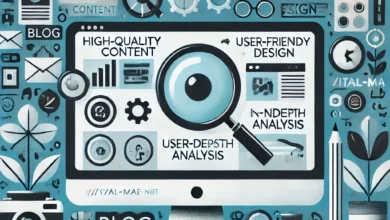9 Tips on How to Spend and Invest a Windfall

Receiving a windfall can be an exhilarating experience. The key to managing a windfall effectively is to make smart decisions that will help you in the long term. Here are a few tips from Kara Gammell, a financial journalist, on spending and investing your newfound wealth wisely.
What is a windfall?
A windfall refers to an unexpected, often large, amount of money or financial gain that comes to a person or organization. Here are some examples:
- Inheritance: Receiving a large sum of money or property from a relative who has passed away.
- Lottery or Gambling Winnings: Winning a significant prize from the lottery, casino games, or betting at Lottoland UK, for instance.
- Investment Gains: Earning substantial profits from stocks, real estate, or other investments, especially if they appreciate quickly and unexpectedly.
- Business Profits: A company experiencing a sudden profit surge due to market changes, new product success, or a lucrative contract.
- Tax Refunds: Getting a larger-than-expected tax return from overpayment throughout the fiscal year.
- Legal Settlements: Receiving compensation from lawsuits or legal settlements that are more than anticipated.
How to Spend and Invest a Windfall?
1. Take a Moment to Breathe
Before you do anything, take a step back and give yourself time to process the situation. It’s easy to get caught up in the moment and make impulsive decisions, but these can often lead to regrets later on. So, pause and breathe. Consider speaking with a financial advisor who can help you understand your options and create a plan that aligns with your goals.
2. Pay Off Debt
One of the most beneficial moves you can make with your windfall is to pay off any outstanding debts. This could include credit card balances, student loans, or a mortgage. Not only does paying off debt provide a guaranteed return by saving you from future interest payments, but it also gives you a sense of financial freedom and reduces stress.
3. Build Your Emergency Fund
If you don’t already have an emergency fund, now is the perfect time to start one. Aim to set aside enough money to cover at least three months’ worth of living expenses. This fund will be a safety net for unexpected events such as job loss or medical emergencies. Having this cushion can prevent you from falling into debt should life throw you a curveball.
4. Invest for the Future
Investing some of your windfall can help you grow your wealth over time. Consider diversifying your investments across different asset classes like stocks, bonds, and real estate. If you’re new to investing, it might be wise to consult a financial advisor who can guide you based on your risk tolerance and investment goals.
5. Treat Yourself (Responsibly)
While it’s important to be prudent with your windfall, treating yourself to something special is also okay. Set aside a small portion of the money for a meaningful purchase or experience that brings you joy. Just be sure to keep it within reason so that it doesn’t detract from your financial stability.
6. Consider Your Tax Situation
Windfalls can come with a hefty tax bill, depending on their source. Before you start spending or investing, understand the tax implications of your windfall. Set aside a portion to cover any taxes due so you’re not caught off guard when tax time comes around. Consulting with a tax professional can help you figure out how much you’ll owe and plan accordingly.
7. Contribute to Retirement Accounts
If you haven’t maxed out your retirement accounts for the year, using some of your windfall to do so can be a smart move. Contributions to retirement accounts like a 401(k) or an IRA often come with tax benefits, and the compound interest over time can significantly increase your savings. Think of it as paying your future self.
8. Give to Others
Sharing your good fortune can be incredibly rewarding. Consider donating a portion of your windfall to charity or setting up a fund to support causes that are important to you. Not only does giving back help others, but it can also provide you with a sense of purpose and fulfilment. Plus, charitable donations can sometimes offer tax deductions.
9. Plan for Major Expenses
If you have upcoming major expenses, such as a child’s education or a home renovation, your windfall could help fund these costs. Allocating money toward these significant life events can reduce the need for loans and the stress associated with large financial burdens. Planning ahead ensures that you’re prepared for these big-ticket items without jeopardizing your financial future.
Remember, a windfall is a unique opportunity to improve your financial situation and achieve your long-term dreams. By following these tips, you can ensure that your sudden influx of cash positively impacts your life for years to come.




